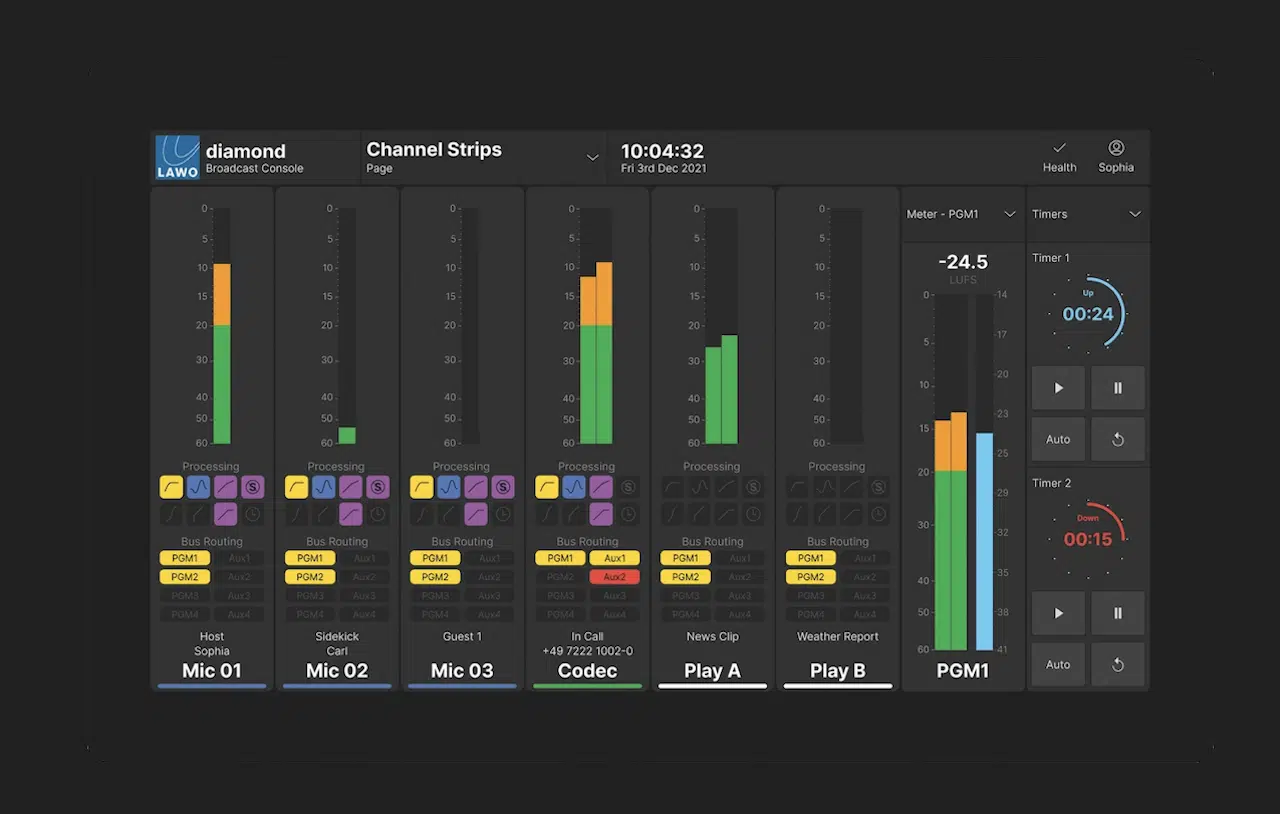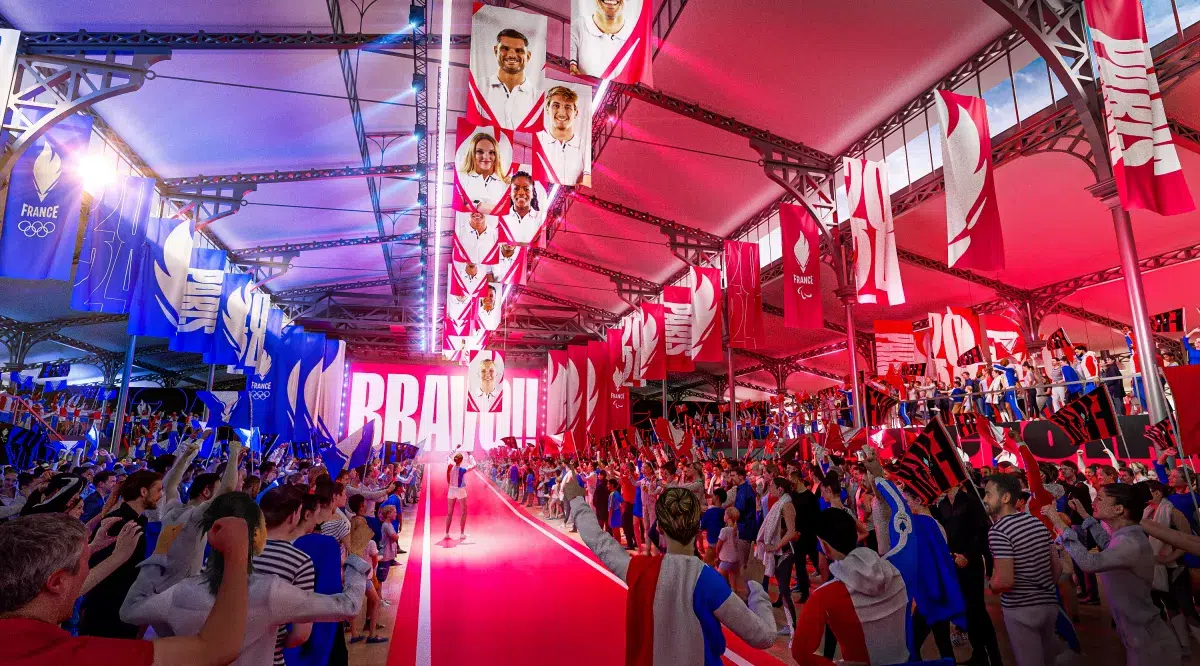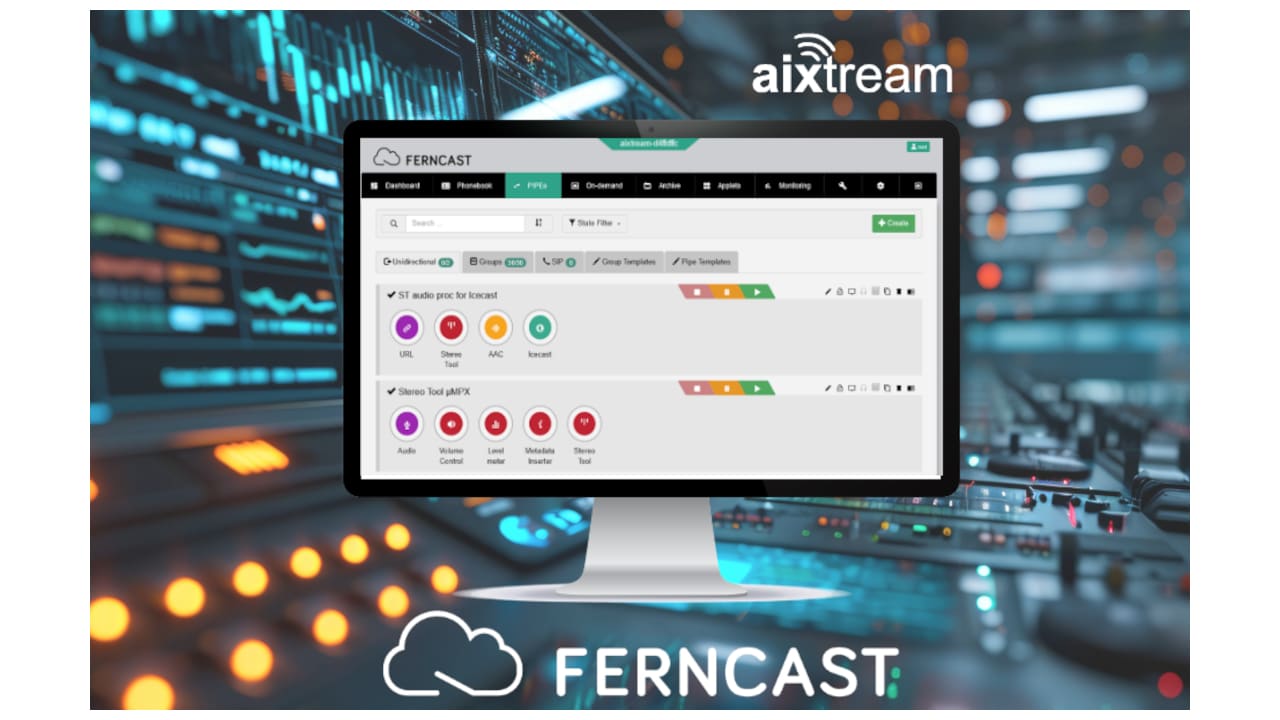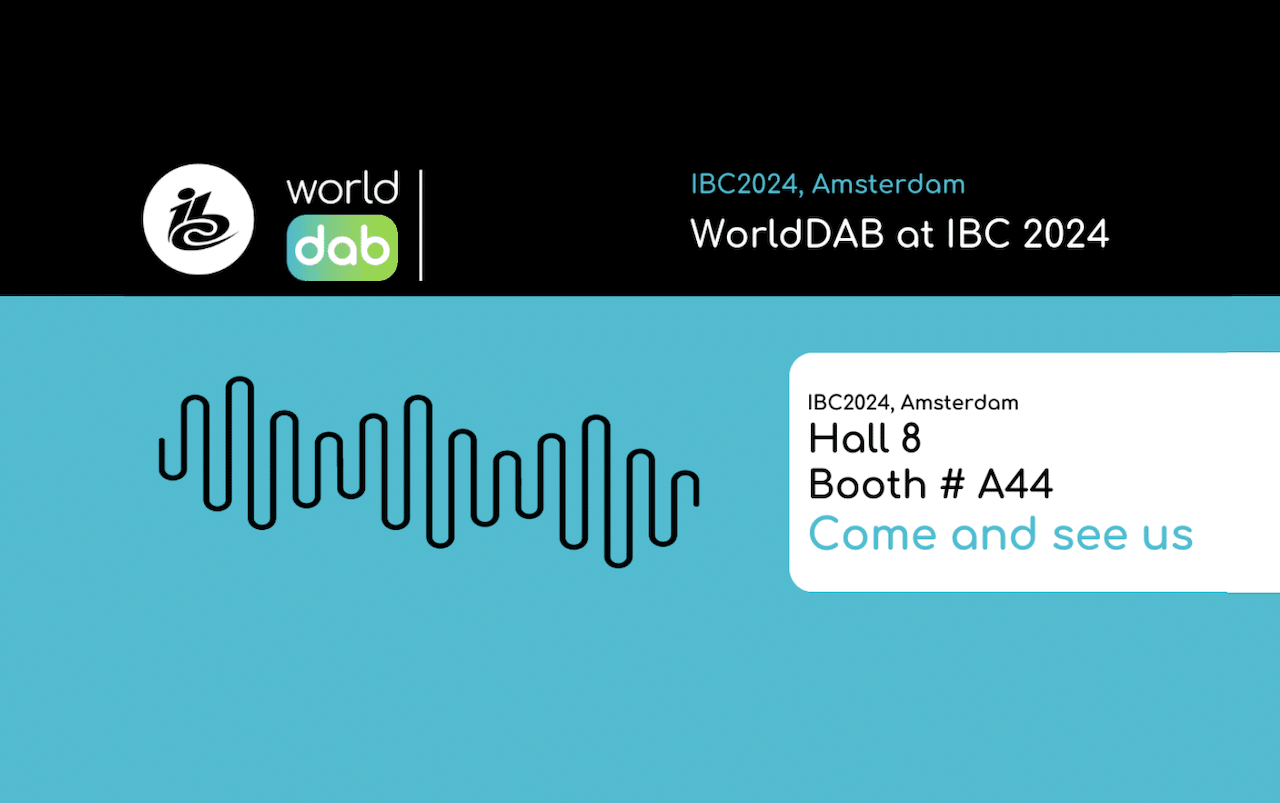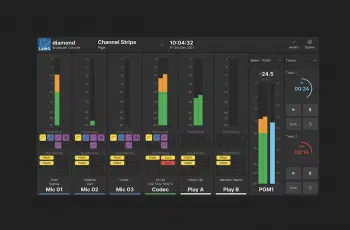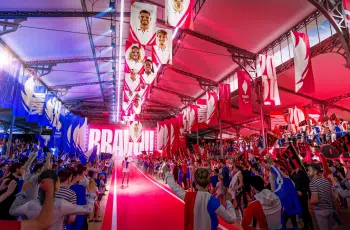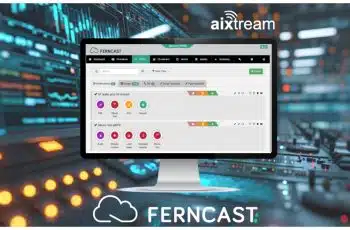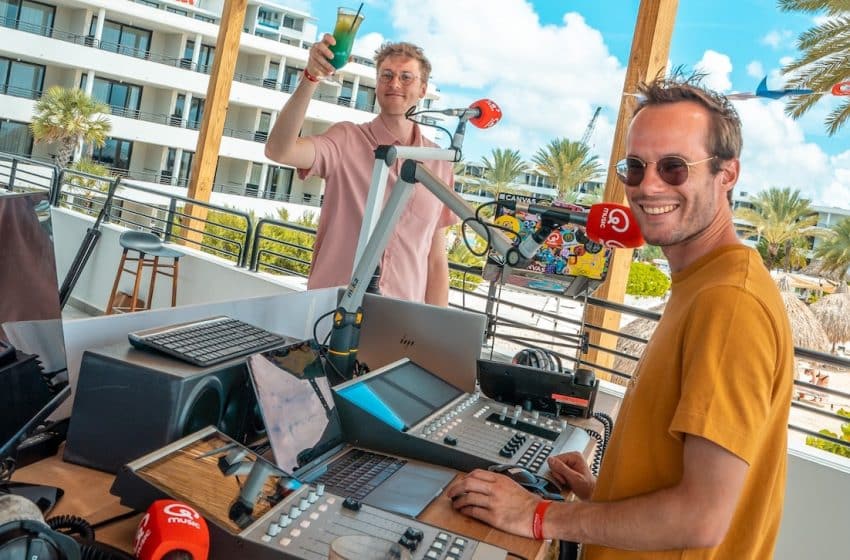
Following this summer’s highly successful Q-Beach House live studio on Belgium’s Ostend beach, attracting some 350,000 visitors, Qmusic opened a pop-up Beach House in the Dutch Caribbean island of Curacao, where the station broadcast between Nov. 14 and Nov. 18.
DJ Vincent Fierens presented his “Vincent Live” evening drive show (4 p.m. – 7 p.m.) live from the Q-Beach House on the white sands of the Willemstad Mangrove resort in Land Curacao. Producer Nils Melckenbeeck and radio broadcast engineer Ben Gysen accompanied him, together with ten Qmusic listeners — winners of a competition held earlier.
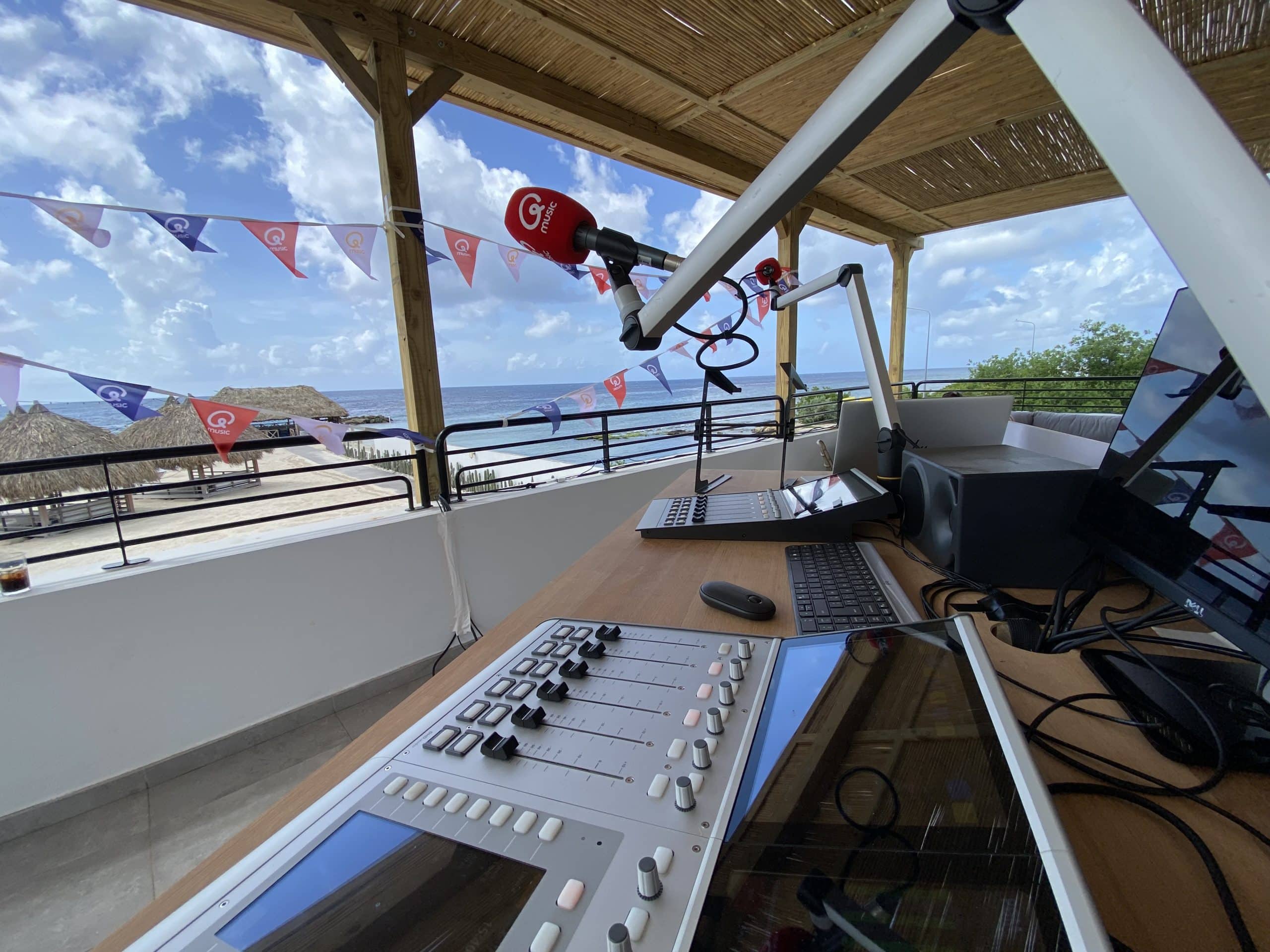
“It’s getting colder in Belgium, so we traveled to Curacao,” said Fierens. “Presenting my ‘Vincent Live’ from a sunny terrace while enjoying a cocktail is great. And we brought the sun to our audience at home, adding an exotic flavor to the playlist.”
The live broadcast used a DHD RX2 core and console on-site. The Omniplayer 2 playout, telephone conversations and interviews were mixed with the signal in the Qmusic main studio in Vilvoorde, Belgium.
“We have been experimenting with remote studios (we prefer to call them virtual studios) for some time,” said Gysen. “In this case, we used a secure VPN tunnel to visualize the remote DHD in our main broadcast landscape. We transferred the control functions using BT Connect — this allows us to control the presenter console from anywhere in the world, using 4G or, in this case, a high-speed internet link on-site, limiting the latency to a mere 140 ms (roundtrip).”
In addition to the fader control, Prodys Quantum XL codecs facilitate Omniplayer PFL-monitoring and internal talkback for the production team. “In doing so, we reduce the connection’s bitrate, allowing us to use an Opus codec for the DJ’s signal monitoring,” continued Gysen. “The big advantage of having the playout engines located in our data center is that we don’t need to synchronize the music database. All last-minute changes in playlists or audio files display instantly in our main studio.”



